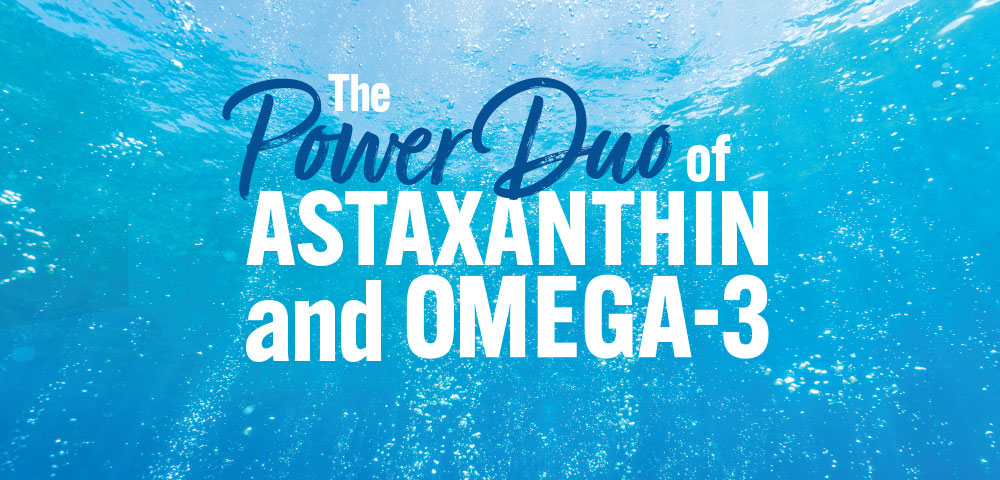
Did you know that omega-3 fatty acids are essential nutrients (meaning your body doesn’t make them), so you must obtain them from your diet? We need omega-3 for healthy skin, hair, nails, joints, hormones, heart, and brain; yes, every part of the body requires omega-3s for optimal function and the production of anti-inflammatory hormones. The question is, are you getting your omega-3s every day?
Omega-3s are in plant foods, such as nuts, seeds, and leafy green vegetables. However, the ultimate source of long-chain EPA/DHA omega‑3s is fatty fish like sardines, anchovies, mackerel, and salmon. Ensure you include daily sources of these beautiful fats. For example, add a scoop of seeds like chia, hemp, or flax seeds to your morning cereal or smoothie. At least two times per week, enjoy a serving of wild-caught salmon. But because of daily stressors, exposure to free radicals and toxins, not to mention our inability to metabolize these fats from the diet, research has shown that our bodies require even more omega-3s than we can get from our food.
Oxidative Stress
Oxidative stress (free radicals) is one of the most significant factors in the development of chronic disease. The body does naturally produce some free radicals as part of normal cell functioning; however, too many can lead to oxidative stress, which is harmful to health. Every day we are exposed to toxins and free radicals through our diet (processed food, alcohol, smoking) as well as the environment from pollution, radiation, pesticides, and chemicals found in everyday household products like soaps, creams, and cleaning solutions. New research has shown that daily mental stressors can lead to increased oxidative stress as well.
Our body has several natural systems in place to combat this free radical cell damage, particularly through the production of antioxidants. We can increase antioxidants from certain fruits, vegetables, and other natural compounds such as turmeric and ginger. However, this is often not enough, and therefore supplementation with additional daily antioxidants can be incredibly beneficial to balance the free radicals and decrease oxidative stress. The long-term impact of excessive oxidative stress can cause cancers, damage to brain, eye, nervous system, joint, and heart health, and accelerated aging.
Astaxanthin
Mother nature gives us plenty of opportunities to reap the benefits of her bounty. A form of microalgae, known as Haematococcus pluvialis or astaxanthin, is the richest source of a vibrant deep-red carotenoid pigment found primarily in marine life. When it is consumed by salmon, lobster, shrimp, krill, and other sea life, the intense red pigmentation results in these animals’ red or pink flesh. Astaxanthin is absolutely essential to the survival of these organisms. Astaxanthin is 65 times stronger than vitamin C, 50 times more powerful than beta-carotene, and 10 times more powerful than vitamin E, with more than 50 studies showing its benefits in relation to oxidative disease. Research also shows the combined benefits of omega-3 and astaxanthin to help combat oxidative stress.
Astaxanthin is 65 times
stronger than vitamin C
50 times more powerful
than beta-carotene
10 times more powerful
than vitamin E
Nature offers the best first line of defense for overall health and wellness. Vibrant, colorful, nutrient-dense, whole, real foods can protect your body from daily stressors and environmental damage. In addition, supplementing with omega-3 fatty acids and astaxanthin as a very potent combination can fight inflammation and improve heart health.












